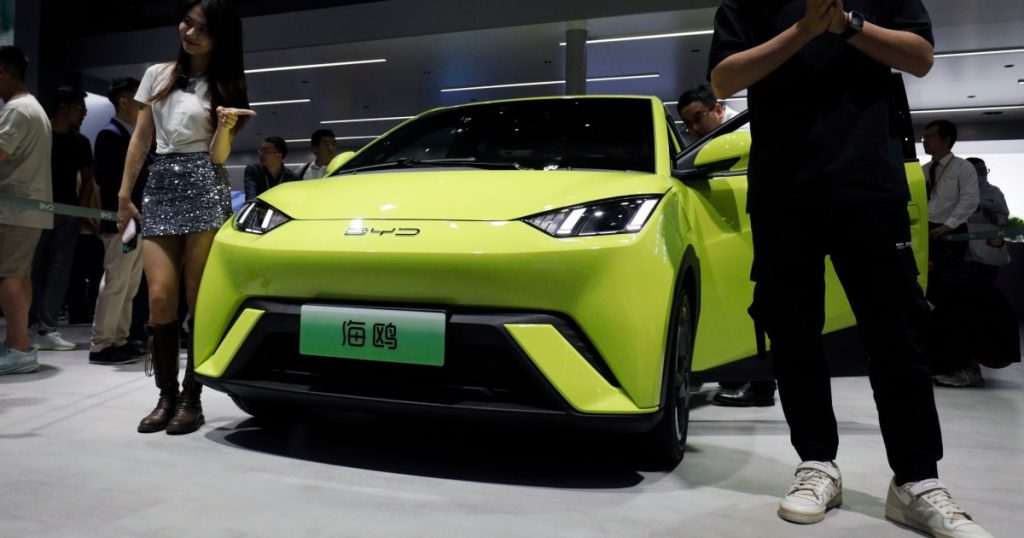The Chinese-built BYD Seagull, priced at less than $10,000, has the potential to disrupt the global automotive industry due to its low price point and profitability for the automaker. This has led to concerns among automotive executives and politicians worldwide, as Chinese automakers begin to expand into global markets. Reports indicate that BYD has seen significant growth, becoming the world’s largest producer of electric vehicles in 2023, surpassing Tesla. This has raised fears among global automakers that Chinese vehicles could flood their markets and undercut domestic production and prices, posing a threat to the auto industry.
The BYD Seagull, known as the BYD Dolphin Mini in Latin America, has been compared to other popular electric vehicles like the Chevrolet Bolt and Nissan Leaf. Despite being slightly smaller and having a lower range and power output, the Seagull has been praised for its design, quality, and efficiency by automotive experts. Caresoft, a consulting firm, conducted a thorough analysis of the vehicle and found it to be well-executed and cost-effective, even at its low price point. BYD’s success is attributed to its battery technology, vertical integration, and efficient production processes, which have enabled the company to compete with global counterparts.
As Chinese automakers like BYD continue to expand globally, concerns have been raised about the impact on traditional automakers in the U.S. and elsewhere. The decline in market share for American automakers and the rise of competitors from Japan, South Korea, and China have led to calls for increased tariffs on Chinese imports to protect local industries. Lawmakers in the U.S. and Europe have expressed concerns about the growing influence of Chinese EVs in the market. The potential entry of Chinese EVs into the U.S. market has prompted discussions about how traditional automakers can compete and adapt to the changing landscape.
The rise of Chinese automakers poses a growing threat to global competitors due to advantages such as government support, lower labor costs, and efficient production processes. While traditional automakers like Ford are focusing on developing competitive technologies to attract customers, Chinese automakers like BYD are rapidly expanding their production capacity and entering new markets. The entry of Chinese automakers into key markets could have a profound impact on the global auto industry, leading to increased competition and potential disruption for traditional automakers.
To compete with Chinese automakers like BYD, traditional automakers must be willing to learn, unlearn, and adapt quickly to changing market dynamics. The long-standing procedures and workflows of companies like the Detroit automakers may need to be rethought to effectively compete with Chinese counterparts in the future. The automotive industry is undergoing significant changes as China becomes a major player in the global market, driving traditional automakers to innovate and evolve to stay competitive. The potential arrival of Chinese vehicles like the BYD Seagull on U.S. shores could mark a significant shift in the industry and require traditional automakers to rethink their strategies to succeed in the evolving market.


